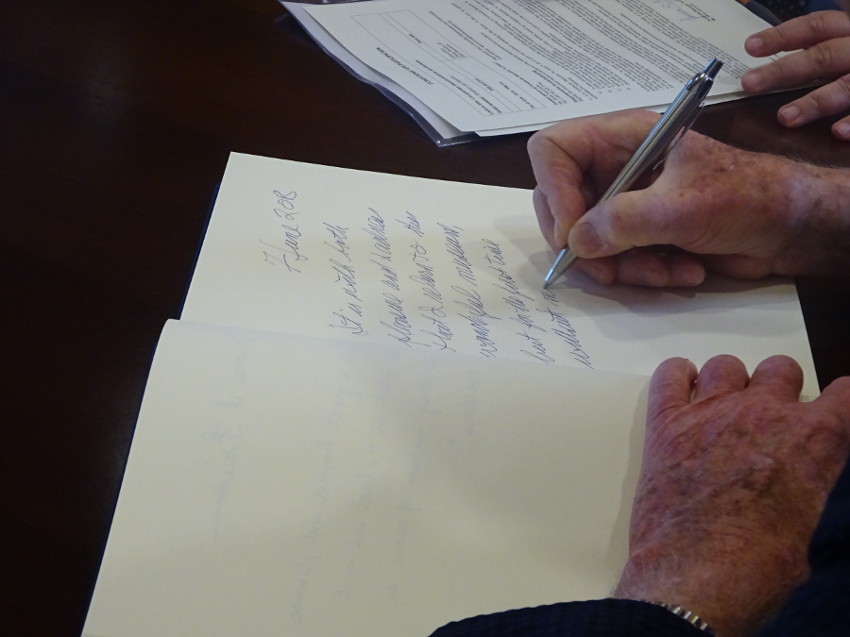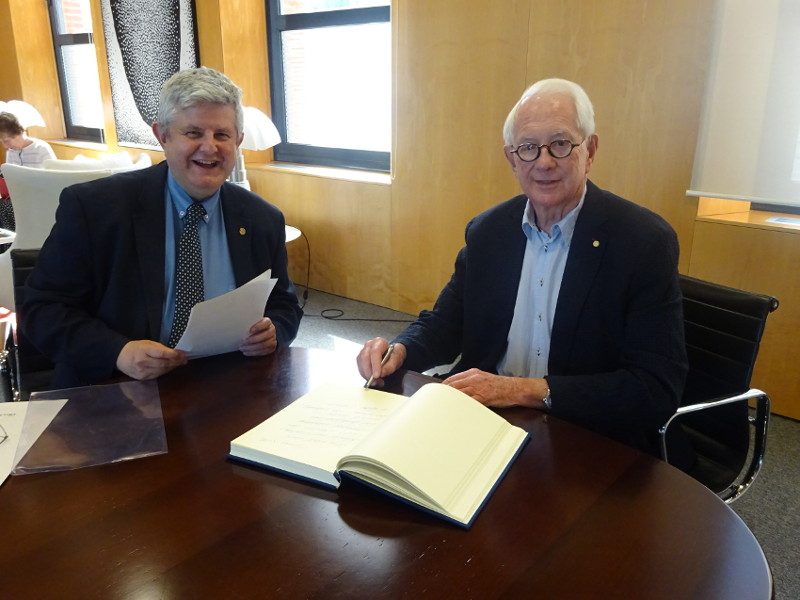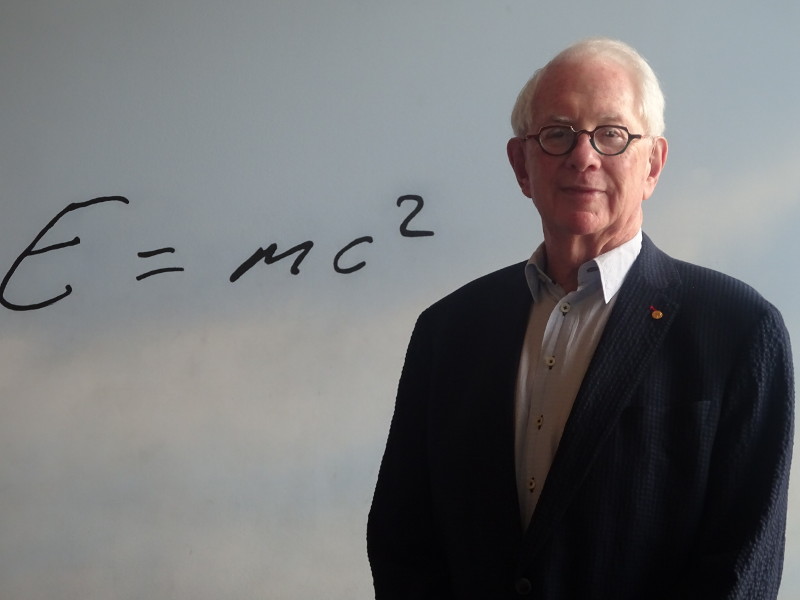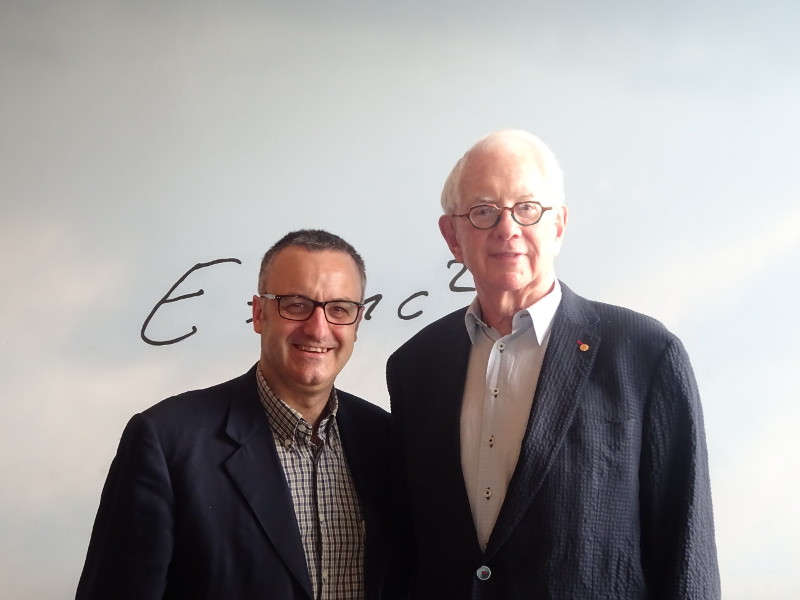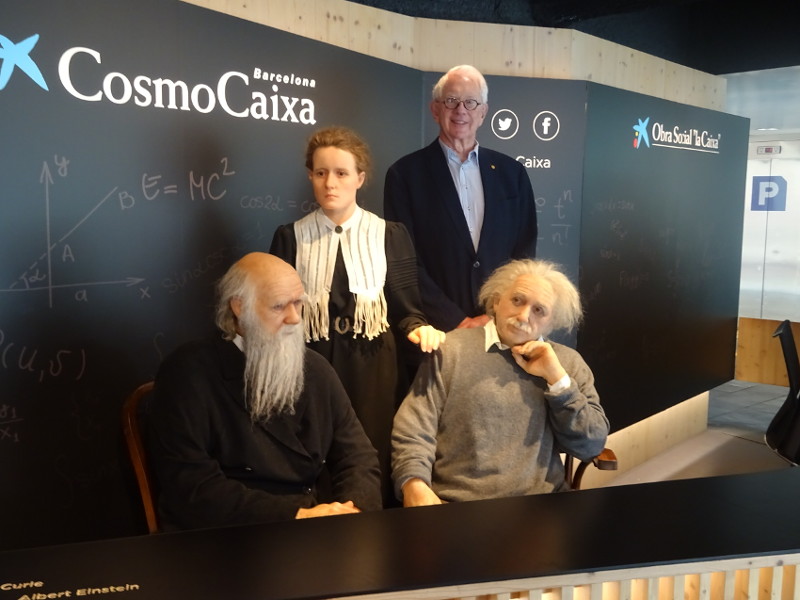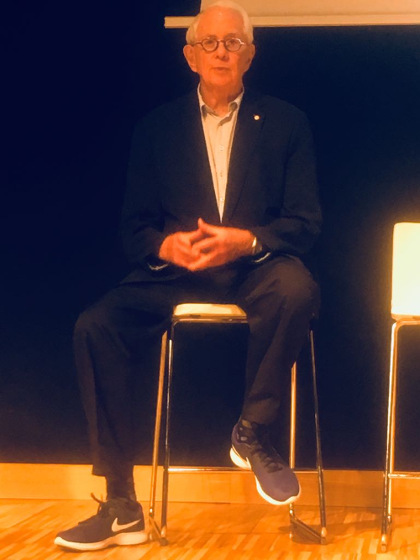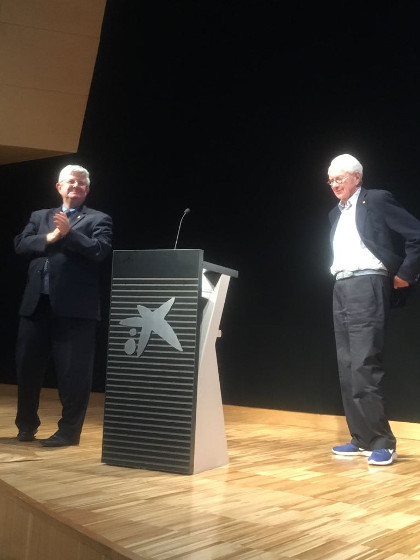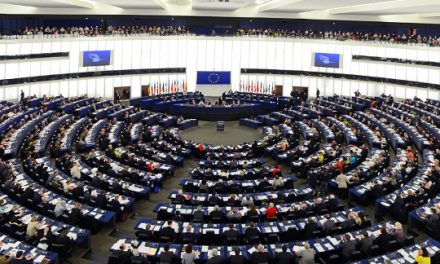Sheldon Glashow, honorary academician of the RAED, closes the cycle “Science seen through the eyes of Nobel laureates”
Sheldon Glashow, Nobel prize in Physics in 1990 and honorary academician of the Royal European Academy of Doctors-Barcelona 1914 (RAED), participated on June 7 in the cycle “La ciencia vista a través de los ojos de Premios Nobel” (Science seen through the eyes of Nobel laureates), which was held at the CosmoCaixa in Barcelona organized by Social Work of La Caixa and RAED. Glashow delivered the closing conference, “Accidental discoveries in science”, in which he offered interesting examples of how some of the most important discoveries of science have been due to accidental factors.
“Penicillin was discovered by Alexander Fleming by chance, while streptomycin, the second important antibiotic, was sought -the Nobel laureate began his speech-. Another case, going back to the 18th century, is that of infrared and ultraviolet radiation. The first was discovered by William Herschel in 1800, when he was studying sunlight scattered by a prism. He placed thermometers in each colour of light and others of control. A thermometer that turned out to be beyond the red part of the spectrum recorded a temperature high and he thus discovered, by chance, a form of light outside the visible spectrum: infrared radiation”.
X-rays were also accidental discoveries, when Wilhelm Conrad Roentgen was working on cathode ray experiments and, by chance, he observed how a sheet of cardboard impregnated with cyanide showed fluorescence. Roentgen spread it among the scientific community and called his X-Ray discovery because he didn’t know its origin very well. Glashow also spoke of the accidental discovery of radioactivity by Henri Becquerel.
In everyday settings, the honorary academician explained how the discovery of saccharin by the chemist Constantin Falhberg was also the result of chance. The researcher forgot to wash his hands after an experiment and when he put his fingers to his mouth he noticed an extraordinary sweet taste. In the case of Michael Sueda, chance caused him to leave a cigar that he was smoking on a laboratory table where he was looking for a feverfew and when he smoked again he noticed an extraordinary sweet taste, cyclamate.
The session also addressed accidental discoveries that led to the award of the Nobel Prize, highlighting in a special way the last one, graphene. It was discovered by André Geim and a doctorate student, Konstantin Novaselov, from an experiment with no pretensions about a graphite pencil lead. Accidental also were the discovery of Viagra in 1992, during tests conducted with a drug against angina. LSD, discovered by a Swiss chemist Albert Hofmann, appeared when he tried to purify the compounds produced by ergot to prevent haemorrhages that occur after childbirth.
Four other Nobel laureates and honorary academics from RAED have participated in the CosmoCaixa cycle: Aaron Ciechanover and Ada Yonath, Nobel prizes in Chemistry; Richard Roberts, Nobel prize in Medicine, and Jerome Friedman, Nobel prize in Physics. Ciechanover, Yonath and Friedman have also participated in the “Talento Nobel” (Nobel Talent) cycle, organized in Seville by the Cajasol Foundation and the Royal Academy. The success of both has led to the RAED and the Social Work La Caixa sign a new agreement that will give continuity to the talks of the Nobel prizes.


